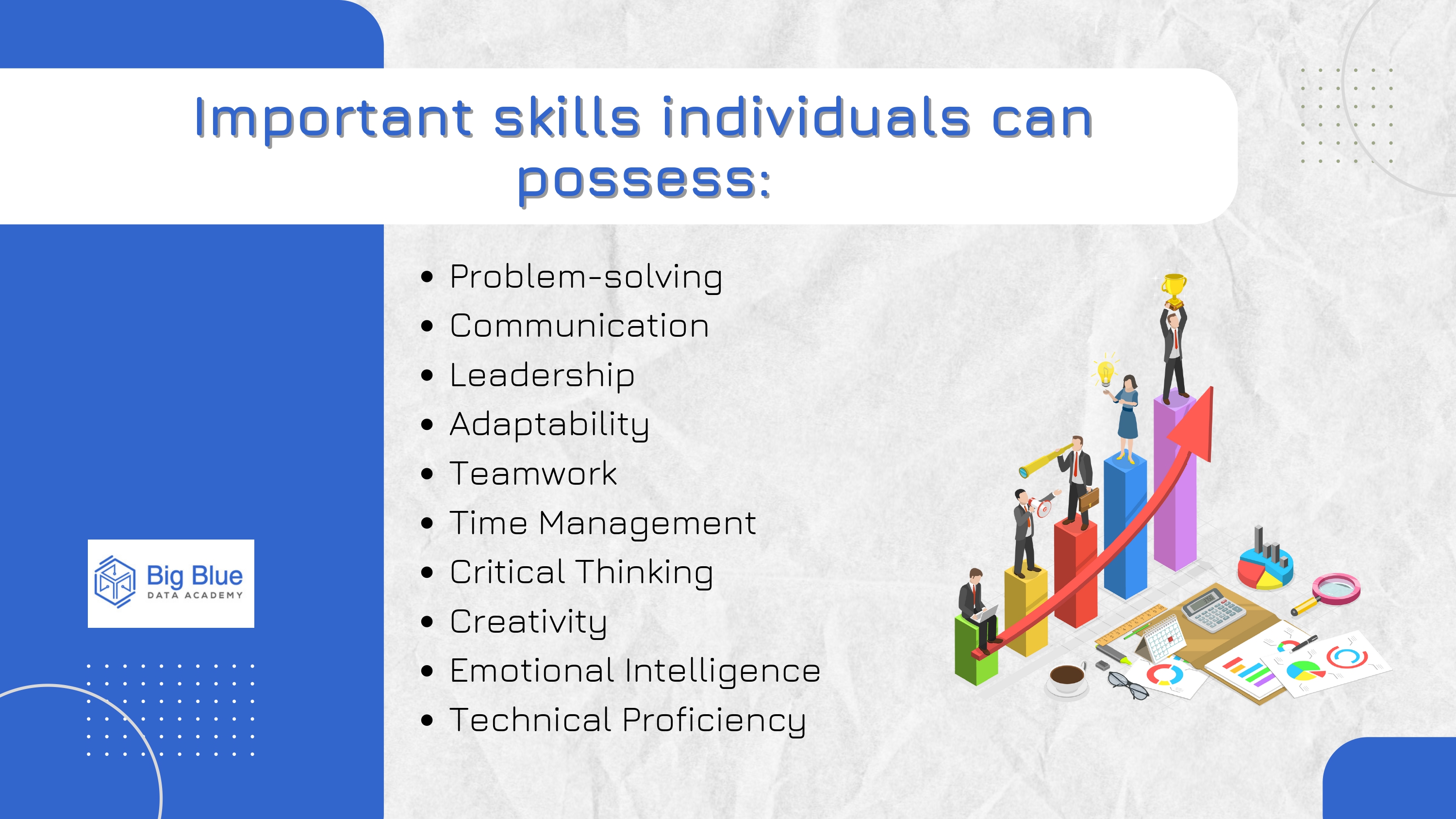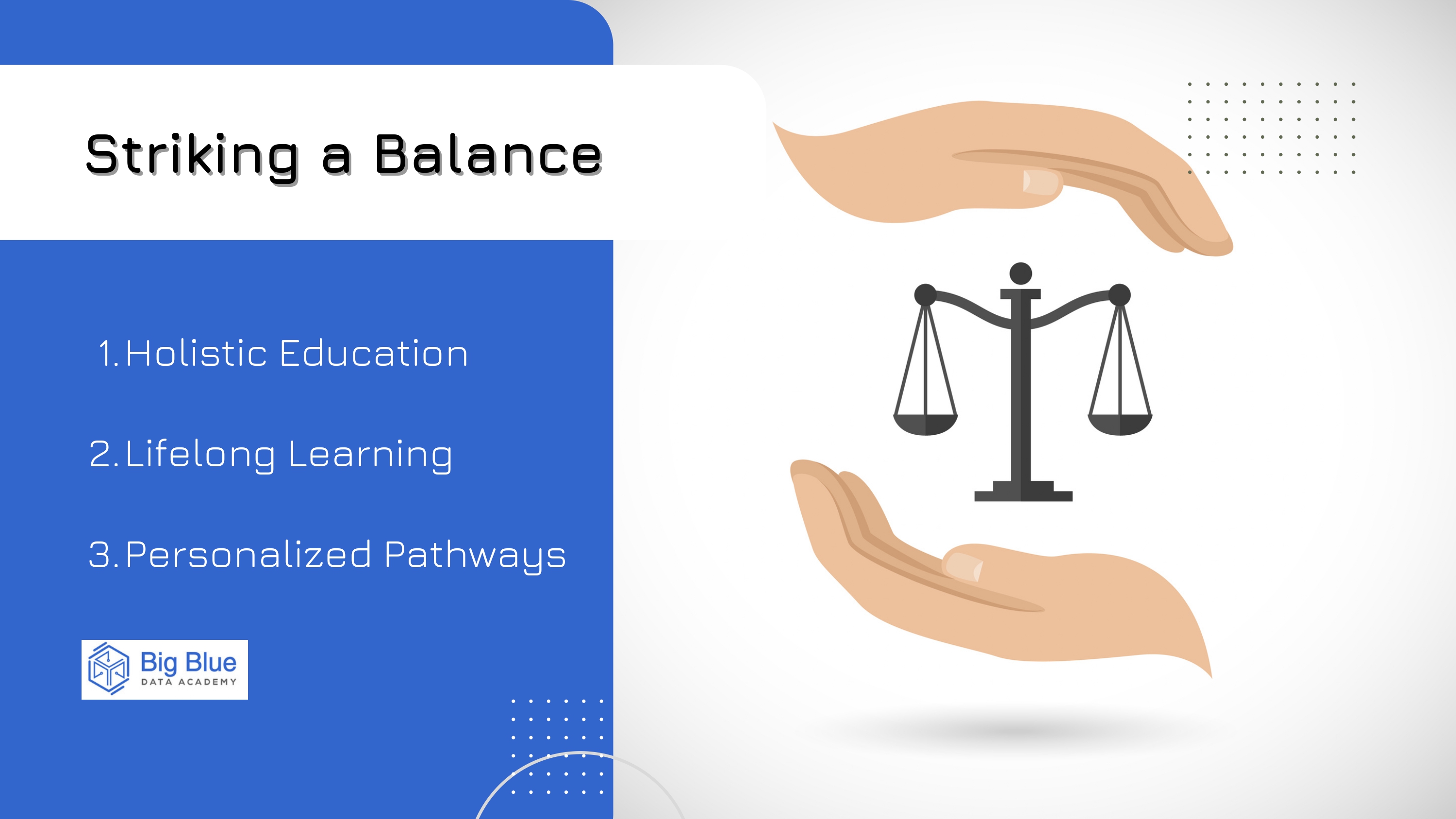Degree vs Skills
In the landscape of education and expertise, the dichotomy between pursuing a traditional degree and acquiring practical skills has been a subject of considerable debate.
Each path offers distinct advantages and considerations, shaping the trajectory of individuals' careers and their approach to professional development.
In this article, we’ll discuss:
-The value of a degree
-The power of skills
-How to strike a balance
The Value of a Degree
A traditional degree from a college or university has long been regarded as a hallmark of academic achievement and a pathway to success in many professions.
Here are some key considerations regarding the value of a degree:

Enhanced Career Opportunities:
A degree opens doors to a wider array of career opportunities across various industries and professions.
Many employers require candidates to have a bachelor's degree or higher for entry-level positions, making it a prerequisite for advancing in certain fields.
Increased Earning Potential:
On average, individuals with a college degree tend to earn higher salaries than those without.
According to statistical data, the median earnings of bachelor's degree holders are significantly higher than those with only a high school diploma.
Over a lifetime, this earnings gap can translate into substantial financial benefits.
Specialized Knowledge and Skills:
Pursuing a degree allows individuals to acquire specialized knowledge and skills relevant to their chosen field of study.
Whether it's engineering, business, healthcare, or the humanities, a degree program provides in-depth training and expertise that can be applied in professional settings.
Personal Development and Growth:
Beyond academic knowledge, a degree program fosters personal development and growth.
Students learn critical thinking, problem-solving, communication, and time management skills, which are invaluable both in the workplace and in everyday life.
Additionally, the college experience often promotes independence, resilience, and cultural awareness.
Networking Opportunities:
Colleges and universities offer abundant networking opportunities that can be instrumental in career advancement.
Through interactions with professors, classmates, alumni, and industry professionals, students can build valuable connections that may lead to internships, job offers, mentorship, and other career-related opportunities.
These networks often extend beyond graduation, providing a lifelong support system and access to resources.
Beyond the Diploma: The Power of Skills
In an era defined by rapid innovation and evolving job roles, the ability to apply practical skills in real-world scenarios has emerged as a competitive advantage.
Unlike traditional degrees that often emphasize theoretical concepts, skills-focused education prioritizes actionable knowledge and problem-solving capabilities relevant to today's workforce demands.
Skill Sets in Demand:
From digital marketing and data analysis to coding and graphic design, industries across the board are placing greater emphasis on specific skill sets tailored to their evolving needs.
Employers seek candidates who can demonstrate proficiency in areas such as project management, communication, critical thinking, and adaptability—attributes that transcend the confines of formal education.
Here's a list of important skills individuals can possess:

Problem-solving:
The capacity to analyze complex situations, identify solutions, and implement effective strategies to resolve challenges.
Communication:
Proficient verbal and written communication skills, crucial for conveying ideas, information, and instructions clearly and effectively
Leadership:
Strong leadership abilities encompassing vision, decision-making, and the capability to inspire and motivate others toward shared goals.
Adaptability:
Flexibility and agility to navigate change, embrace new technologies, and thrive in evolving environments.
Teamwork:
Collaboration skills enable individuals to work harmoniously with diverse teams, leveraging collective strengths to achieve common objectives.
Time Management:
Efficient management of time and resources to prioritize tasks, meet deadlines, and maximize productivity.
Critical Thinking:
Analytical thinking skills to evaluate information, assess options, and make reasoned decisions based on evidence and logic.
Creativity:
Innovative thinking to generate novel ideas, approaches, and solutions to complex problems, fostering continuous improvement and innovation.
Emotional Intelligence:
Self-awareness, empathy, and effective management of emotions in oneself and others, crucial for building strong relationships and navigating interpersonal dynamics.
Technical Proficiency:
Proficiency in relevant technical tools, software, or methodologies essential for performing tasks and staying competitive in a particular field or industry.
Striking a Balance
While the debate between degree and skills persists, the reality is that both avenues have their merits and limitations.
Rather than viewing them as mutually exclusive, individuals can benefit from a hybrid approach that integrates academic learning with practical experience.
Here's how to strike a balance:

1. Holistic Education:
Embrace a holistic approach to education that combines theoretical knowledge with hands-on experience.
Seek out opportunities for internships, co-op programs, and experiential learning that complement your academic studies and provide real-world exposure.
2. Lifelong Learning:
Cultivate a mindset of lifelong learning and continuous skill development.
Stay curious, explore new interests, and invest in ongoing education through workshops, seminars, and online courses.
The ability to adapt and evolve with changing trends is essential for long-term career success.
3. Personalized Pathways:
Recognize that the ideal educational pathway varies for each individual based on their goals, interests, and circumstances.
Whether you choose to pursue a traditional degree, acquire practical skills, or opt for a combination of both, prioritize alignment with your values and aspiration.
In conclusion
The debate between degree and skills reflects the diverse landscape of education and expertise in the modern world.
The path to success in education and career is rarely straightforward.
It requires hard work, dedication and the right combination of knowledge and skills.
Follow us for more educational content!

.jpg)
.jpg)